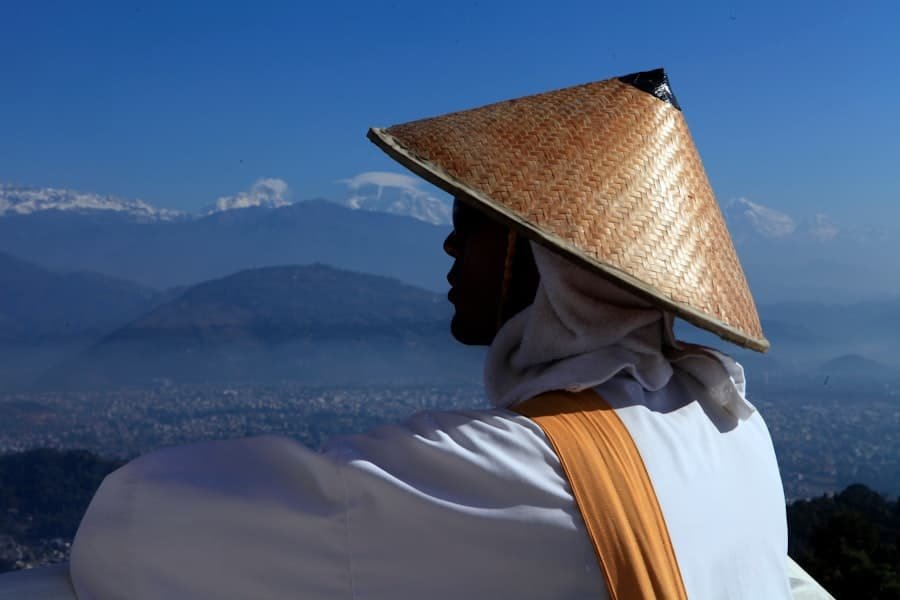Globalization is the process of interaction and integration among people, companies, and governments of different nations. This process is driven by international trade and investment, and aided by information technology. As a result, the world has become increasingly interconnected and interdependent.
One of the key aspects of globalization is cultural exchange, which refers to the sharing and blending of different cultural practices, beliefs, and values across borders. This exchange has both positive and negative impacts on traditional cultural practices, popular culture, and the overall diversity of the world’s cultures. Cultural exchange is a natural consequence of globalization, as people from different parts of the world come into contact with each other through travel, trade, and technology.
This exchange can lead to the enrichment of cultures through the sharing of traditions, languages, and customs. However, it can also lead to the erosion of traditional cultural practices as they are influenced by external forces. It is important to understand the impact of globalization on cultural exchange in order to appreciate the complexities and challenges that come with it.
Key Takeaways
- Globalization has led to increased cultural exchange and interaction between different societies and nations.
- Traditional cultural practices have been impacted by globalization, leading to both preservation and adaptation of these practices.
- Technology plays a significant role in promoting cultural exchange by facilitating communication and sharing of cultural content.
- Globalization has led to the spread of popular culture, influencing the cultural practices of different societies around the world.
- The globalized world presents both challenges and opportunities for cultural diversity, requiring efforts to preserve and celebrate diverse cultures.
The Impact of Globalization on Traditional Cultural Practices
The Double-Edged Sword of Cultural Exchange
On one hand, globalization has increased awareness and appreciation for different cultures, allowing for the preservation of traditional practices. On the other hand, it has led to the adaptation of traditional practices to fit into a globalized market, resulting in concerns about the loss of authenticity and uniqueness.
The Commodification of Cultural Practices
Traditional cultural practices have been commodified and marketed to appeal to a global audience, leading to a dilution of their original meaning and significance. For instance, traditional clothing, music, and art forms are often mass-produced for commercial purposes, diminishing their cultural value.
The Struggle to Maintain Cultural Identity
Furthermore, globalization has led to the spread of Western cultural norms and values, which can overshadow or replace traditional practices in some societies. As a result, many communities are struggling to maintain their cultural identity in the face of globalization.
The Role of Technology in Promoting Cultural Exchange

Technology has played a significant role in promoting cultural exchange in a globalized world. The internet, social media, and digital communication have made it easier for people from different cultures to connect and share their traditions and experiences. This has led to a greater awareness and appreciation for diverse cultures around the world.
Additionally, technology has facilitated the preservation and documentation of traditional cultural practices through digital archives and online platforms. Furthermore, technology has enabled the global dissemination of cultural products such as music, films, and literature, allowing them to reach a wider audience than ever before. This has created opportunities for artists and creators from diverse backgrounds to showcase their work on a global stage.
However, it is important to recognize that technology can also be a double-edged sword when it comes to cultural exchange. While it has the potential to promote understanding and empathy between different cultures, it can also lead to the appropriation and misrepresentation of traditional practices.
Globalization and the Spread of Popular Culture
Globalization has played a significant role in the spread of popular culture around the world. Popular culture refers to the mainstream cultural products and practices that are widely accepted and consumed by a large audience. As a result of globalization, popular culture has become increasingly homogenized, with Western influences dominating the global market.
This has led to concerns about the loss of diversity and authenticity in cultural expressions. The spread of popular culture through globalization has led to the dominance of Western media, fashion, and entertainment in many parts of the world. This has had a profound impact on local cultures, as they are often overshadowed by global trends and preferences.
Additionally, the commodification of popular culture has led to the commercialization of traditional practices, as they are often adapted to fit into a globalized market. As a result, many communities are struggling to maintain their cultural identity in the face of globalization.
Challenges and Opportunities for Cultural Diversity in a Globalized World
Globalization presents both challenges and opportunities for cultural diversity in a globalized world. On one hand, it has led to the erosion of traditional cultural practices as they are influenced by external forces. This has raised concerns about the loss of authenticity and uniqueness in traditional cultures.
On the other hand, globalization has also provided opportunities for cultural exchange and the preservation of traditional practices through increased awareness and appreciation for different cultures. One of the key challenges for cultural diversity in a globalized world is the threat of cultural homogenization, where local traditions are overshadowed by global trends and preferences. This can lead to the loss of unique cultural expressions and practices.
Additionally, globalization has led to the spread of Western cultural norms and values, which can overshadow or replace traditional practices in some societies. However, there are also opportunities for promoting cultural diversity through education, advocacy, and policy initiatives that support the preservation and celebration of diverse cultures.
The Importance of Preserving and Celebrating Cultural Diversity

Building Bridges Between Communities
This can help to bridge divides between different communities and foster a sense of global citizenship. Furthermore, preserving and celebrating cultural diversity is important for ensuring that future generations have access to their heritage and traditions. By passing down traditional practices and knowledge, we can ensure that they continue to thrive in a globalized world.
Preserving Heritage for Future Generations
Preserving and celebrating cultural diversity is crucial for the continuation of cultural heritage. By passing down traditional practices and knowledge, we can ensure that future generations have access to their cultural roots and can continue to thrive in a globalized world.
Fostering Innovation and Creativity
Additionally, celebrating cultural diversity can lead to greater innovation and creativity as different perspectives come together to inspire new ideas and expressions.
Strategies for Promoting Positive Cultural Exchange in a Globalized Society
There are several strategies that can be employed to promote positive cultural exchange in a globalized society. Education plays a crucial role in promoting understanding and appreciation for diverse cultures. By incorporating multicultural perspectives into curricula and promoting cross-cultural dialogue, we can foster empathy and respect for different ways of life.
Additionally, supporting local artists and creators can help to preserve traditional practices and promote authentic representations of diverse cultures. Furthermore, policy initiatives that support cultural diversity can help to protect traditional practices from commercialization and homogenization. This can include measures to safeguard indigenous knowledge and intellectual property rights.
Additionally, promoting sustainable tourism that respects local traditions and environments can help to support communities while preserving their cultural heritage. Overall, promoting positive cultural exchange requires a concerted effort from individuals, communities, governments, and organizations to ensure that diverse cultures continue to thrive in a globalized world.
If you’re interested in learning more about the impact of globalization on cultural exchange and diversity, you may want to check out The Econosphere’s blog. They have a variety of articles that delve into the economic and social implications of globalization, including how it affects different cultures and promotes diversity. You can find more thought-provoking content on their blog here.
FAQs
What is globalization?
Globalization refers to the increasing interconnectedness and interdependence of countries and cultures around the world, through the exchange of goods, services, information, and ideas.
How does globalization affect cultural exchange?
Globalization facilitates cultural exchange by enabling people from different cultures to interact and share their traditions, beliefs, and practices. This can lead to the enrichment and diversification of cultures.
What are the positive effects of globalization on cultural diversity?
Globalization can lead to the preservation and promotion of diverse cultural traditions, as well as the creation of new hybrid cultures that blend elements from different societies.
What are the negative effects of globalization on cultural diversity?
Globalization can also lead to the homogenization of cultures, as dominant global cultures may overshadow and diminish the uniqueness of local traditions and practices.
How does globalization impact language diversity?
Globalization can lead to the spread of dominant languages, potentially endangering smaller, indigenous languages. However, it can also facilitate the learning and preservation of diverse languages through increased communication and education opportunities.
What role does technology play in cultural exchange through globalization?
Technology, such as the internet and social media, has greatly facilitated cultural exchange by allowing people to connect and share their cultures across borders, leading to a more interconnected global community.








